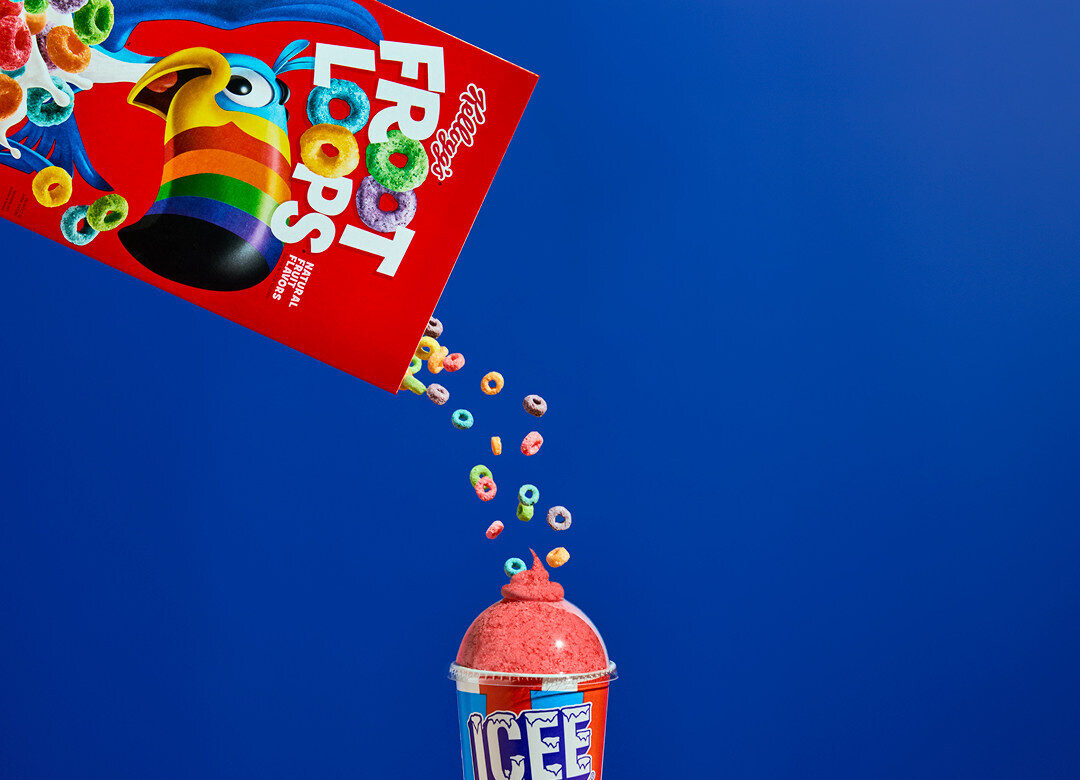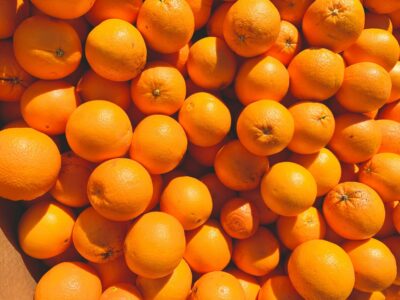(Bloomberg) —
The US Department of Health and Human Services plans to phase out artificial food dyes by working with food companies that rely heavily on them to produce everything from breakfast cereal to salad dressing.
Food and Drug Administration Commissioner Marty Makary said Tuesday that the agency would work with the industry to eliminate six synthetic dyes by the end of 2026, including Red 40, Yellow 5 and Blue 1. The FDA will also ask the industry to eliminate Red 3 before 2027, the timeline set by the Joe Biden administration.
The voluntary effort is a better outcome for food companies than a ban on most dyes many in the industry feared when HHS Secretary Robert F. Kennedy Jr. was appointed.
Makary linked artificial colors to hyperactivity, obesity, diabetes and cancer in children.
“Why are we taking a gamble?” he said. “This administration is not interested in continuing down a path of doing the same old things as we watch our nation’s children get sicker.”
While the FDA will work with the industry to phase out most dyes, Makary said it plans to revoke authorization for two lesser-known ones, Citrus Red 2 and Orange B. Otherwise, Kennedy said HHS and FDA have an “understanding” with the industry on getting dyes out of the food supply.
“Let’s start in a friendly way and see if we can do this without any statutory or regulatory changes, but we are exploring every tool in the toolbox to make sure this gets done very quickly,” Makary said.
But a food reviewer at the FDA said employees who work on food safety were not informed of the announcement, and it remains unclear how the agency plans to implement its plan.
The Consumer Brands Association said in a statement that ingredients in America’s food supply “have been rigorously studied.” The association said it’s urged the government to prioritize ingredient research “that is objective, peer reviewed and relevant to human health and safety.”
Scott Faber, senior vice president of government affairs at Environmental Working Group, called the announcement “less than a nothing burger,” adding that there was no corresponding agreement from the food industry.
Consumer Reports said in a statement that a voluntary federal effort to remove dyes “could take years to achieve” and that states should pursue their own bans to ensure Americans are protected.
And the Center for Science in the Public Interest pointed out that there was no rulemaking announcement on banning dyes. “History tells us that relying on voluntary food industry compliance has all-too-often proven to be a fool’s errand,” the center said in a statement.
Dye Concerns
Kennedy has targeted artificial food dyes as part of his agenda to address the underlying causes of chronic illness. Health advocates have said for years that synthetic colors add no taste or nutritional value but make unhealthy foods more visually appealing. There are also concerns that the dyes may be carcinogenic or trigger hyperactivity in some children.
Food and beverage companies have argued that synthetic dyes are safe. They’ve said it could take time to remove them from the supply chain and natural dyes are more expensive.
The FDA also said it would work quickly to authorize natural dyes, including butterfly pea flower extract.
Artificial dyes are used in a wide number of foods, especially those popular with kids, such as WK Kellogg Co.’s Froot Loops and General Mills Inc.’s Lucky Charms. They’re also in sugary drinks, including Coca-Cola Co.’s Fanta and PepsiCo Inc.’s Mountain Dew and Gatorade. The dyes even appear in some pickles, smoked salmon and flavored applesauce.
“I can’t wait to enter a grocery store and not have to worry about artificial food dyes anymore,” food activist Vani Hari said in an interview. Hari, also known as her social media moniker Food Babe, called the FDA’s move the result of a “massive grassroots campaign.”
States including West Virginia and California have passed laws to regulate the use of food dyes. Kennedy traveled to West Virginia last month to tout the state’s new law to ban seven artificial dyes from school lunches and eventually from all food items in the state.
Food and beverage lobbying groups have railed against West Virginia’s law. The American Beverage Association points to industry-supported studies that found no clear link between synthetic food dyes and neurobehavioral effects, like hyperactivity.
Companies Pressured
Consumer demand for healthier food has prompted some companies to seek alternatives. Additionally, companies were warned that policy changes were coming. In March, Kennedy told executives from Kraft Heinz Co., General Mills and other food makers he wanted artificial dyes out of their products by the end of his term.
McCormick & Co. said last month it was working with more food and restaurant companies to reformulate products, including baking ingredients that use food colorings. On Tuesday, the company said it would speed up efforts to reformulate the products in its branded retail offerings that use artificial dyes.
PepsiCo aims to develop products without artificial dyes, and created spicy potato chips that don’t use the signature red color created by food dyes. Other food makers are embarking on similar efforts.
Earlier Tuesday, the International Dairy Foods Association pledged to eliminate the use of artificial colors in dairy products sold to schools by July 2026, as pressure on the ingredients mounts from health advocates and Kennedy.
Dairy companies will be discontinuing products with synthetic colors or reformulating them with natural ingredients, the IDFA said in a statement. Every dairy company selling a milk, cheese or yogurt product to public schools participating in federally funded lunch and breakfast programs has joined the voluntary pledge, according to the IDFA.
There could be federal regulation on other additives. Kennedy asked the FDA earlier this year to look into changing a rule that allows food companies to self-affirm that food additives are what the agency calls generally recognized as safe, or GRAS.
(Updates with additional comments, from the ninth paragraph.)
© 2025 Bloomberg L.P.





